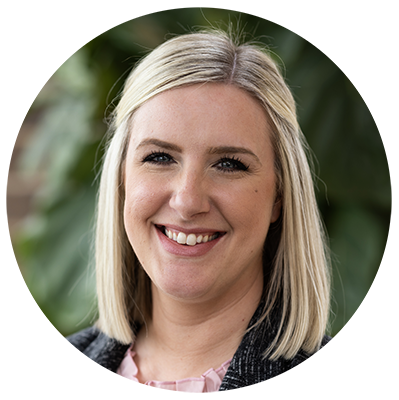Are you thinking about a career change at 40? You’re not alone.
A 2019 survey by Indeed found that the average age for a major career switch was 39. A midlife career change is a big planning goal for many of our clients — especially women.
It may seem daunting to switch gears halfway through your working life. But looking at it another way, you still have half your working life left!
Maybe your career shift is spurred by a lack of job satisfaction, a desire for more flexibility or a layoff. Maybe you’re returning to the workforce after a divorce or as children become more independent.
Whatever the reason, you are likely to spend months — nearly a year, according to the Indeed survey — planning your career change before making a move. Consider the following as you explore your options and prepare the path ahead.
Set your goals
Just like we counsel clients to focus on their goals and values when planning for retirement, a career change is another life transition that calls for introspection.
Consider taking a “career test” like you may have last done in high school. Also ask yourself the following questions and put the answers into words. Saying or writing them often makes them more real than keeping them as thoughts in your head.
- What will make you feel happy or fulfilled in a new career? What will success look like?
- What skills and talents do you want to use, hone, or learn? What do you do better than anyone else? What do you love doing?
- How much time do you want to devote to the transitions? How much time do you want to spend at work in your new role?
- How much money do you want or need to make?
Also, set realistic expectations for getting to your new career goals. You may need to start in an entry-level role with a road map to your goal position. This is especially true if your former and new career don’t have a lot of overlap in skills and relevant work experience.
Consider the ripple effects
A career change at 40 or beyond could affect your family members’ lifestyle, so involve them in the decision-making process.
Your partner or children might need to adjust their schedules or pick up more household responsibilities. This could be a short-term adjustment if you need extra education or moonlight in a new career before making a full shift. Or it could be long-term if you end up working more or different hours.
As you transition to a new career, you may have salary pause or need to pay for some new education or certificates. Make sure your savings can sustain these changes. You’ll also want a solid idea of how much your new career will pay in the short and long term so you can adjust your budget if needed.
The financial effects of a career change could last longer than the career itself. Talk with your financial advisor about how leaving your job will affect your retirement accounts.
Make sure you know your options for rolling over or leaving a 401(k) where it is. If you are near a vesting milestone for your 401(k), that might influence the timing of your career change. Also plan for how to continue building your retirement accounts once you’re in your new career.
Harness your network
So, you’ve identified your new career and the effects on your family and finances. Now you need to find a job!
You’ll find estimates online saying anywhere from 70 to 85 percent of jobs are filled by networking. Whether these numbers are accurate, you can be sure that networking is crucial. How does that work if most of your network is in a career you are leaving? A few suggestions:
- Visit with other people in transition and with people who think outside the box for inspiration.
- Reconnect with “dormant ties.” These are people you once had a strong connection with but whom you have lost touch with. You have a shared history, but they don’t run in the same circles as you so they may have connections in the field that interests you.
- Every time you end a networking conversation, ask “Can you think of anyone else I should talk to?”
- Go on a professional double date. I love this suggestion from Harvard Business Review. You and a contact meet up and you each bring along someone you think the other one should meet.
Next steps
If you’re thinking about a career change at 40 – or beyond — be sure to:
- Leverage your passions as inspiration
- Set incremental goals to measure progress
- Discuss potential impacts with your family and financial advisor
- Spread the word that you’re moving on to something new
- Go confidently into the next phase of your life!

Mallory is a Wealth Manager and Shareholder. She listens deeply and helps simplify complex financial situations to help clients move into an easier, clearer future. She aims to give financial advice that is compassionate, wise, and easy to understand.



